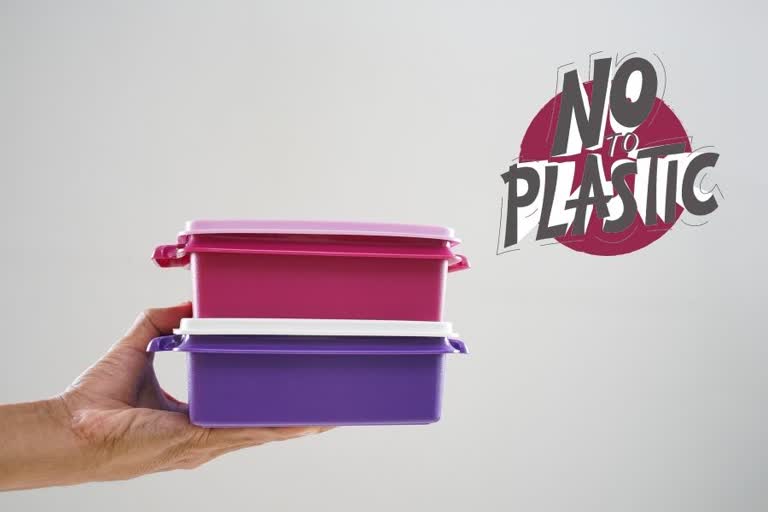You probably cannot imagine a life where you do not use plastic at all. From furniture to containers to carry bags, plastics are used everywhere. And despite knowing its hazardous effects, people use it, perhaps because it is cheaper and convenient to carry around.
If we think about it, the majority of things made out of plastic at our home include containers, boxes or utensils, commonly used for storing or heating food. But do you know how harmful it can be? A Senior General Physician from Indore, Madhya Pradesh, says that heating food in the microwave in low-quality plastic containers or storing/serving hot food in them can greatly affect health.
The results of numerous studies done in this regard show that if we store hot foods in plastic boxes, the chemicals of the box mingle with the food and this can slowly harm our body. Not just this, reheating or consuming hot foods packed in plastic containers or plastic bags can also negatively affect health.
According to a report by the Harvard Medical School, in the long run, plastic chemicals combined with food due to various reasons can lead to health problems like metabolic disorders such as obesity and digestive issues. It can also affect fertility.
In the same regard, a research published in the year 2018 also revealed that many types of diseases can be caused as a result of using plastic utensils for cooking. Cooking or heating food in plastic utensils can affect pregnant women and the fetus, lower the levels of the thyroid hormone and hinder their brain development.
Also Read: What is Green Menstruation?
Chicago's bioscientist and researcher Dr. Jody Flogz in his research done on rats found that polycarbonate plastics are used for the manufacturing of the food boxes, containers, CDs, DVDs and bottles, etc., in which Bisphenol-A (BPA) is used. BPA is a chemical, which can cause infertility in women.
Besides this, experts also say that BPA and other ‘endocrine disrupting’ chemicals found in plastic also increase the risk of heart diseases and cancer. It also affects the levels of the estrogen hormone in the body.
Heating Food In Plastic Causes Chemical Reactions
Kaustubh Kukreja, a young social worker, working towards spreading awareness about the harmful effects of plastic on the environment and health, says that harmful chemicals begin to form if you heat food in a plastic container. He explains that pure plastic is relatively less toxic because it is not biochemically active. But when other types of plastics and colours are mixed together, they can pose a threat to health and the environment.
What Precautions Are Necessary?
Kaustubh explains that it is not easy to completely abstain from using plastic in our daily life. There are so many things like tiffin boxes, water bottles, storage boxes, trash bins, folders, etc., which are unavoidable. However, in 2002, considering the dangers of plastic, the production of plastic bags of thickness less than 20 microns was banned in our country. Further, on 18th March 2016, the Ministry of Environment, Forest and Climate Change passed a regulation to ban all polythene bags that are less than 50 microns.
Many states in our country also declared a complete ban on the use of plastic bags, but because of lack of awareness, people still use them. Dr. Sanjay Jain says that since plastic use is unavoidable, there are a few things that one must keep in mind while using them. Therefore, here are some precautionary measures you need to remember, as suggested by our expert:
- Buy only good quality items.
- Buy products made out of polypropylene for packing food, because chemical resistance is found in them.
- Plastic made of polystyrene can be used for food packaging, but food should not be heated in it. The reason is that it releases certain gases, which can be harmful for health.
- Avoid cooking food in plastic utensils, even in the microwave or heating the food again and again. You can use glassware instead.
- Avoid heating water in a plastic bottle or container. Also, many times water or other beverages in a bottle kept in a vehicle get warm under strong sunlight. This releases chemicals into the water, which can be harmful.
- Do not get tea or coffee packed in polythene.
- Before buying a plastic bottle for the purpose of feeding the baby or buying a teether, make sure it is of the best quality. A study by the Center for Science and Environment states that there are many harmful chemicals in the toys given to babies when they are teething.
Also Read: 5 Ways To Adopt Sustainable Living



